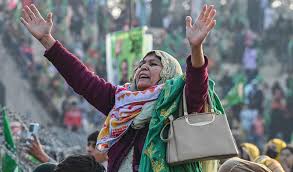ISLAMABAD: Youth leaders from across the country with diverse religious and ethnic backgrounds vowed to promote tolerance and defeat the shadows of intolerance and extremism in a collective oath where former senator and Pakistan People’s Party Senior Leader Farhatullah Babar was the chief guest.
The residential training was organised by non-governmental organisation Mehergarh which concluded on Friday.
The training hosted 37 youth leaders from different parts of the country including Gilgit-Baltistan, Balochistan, Khyber Pakhtunkhwa, Punjab and Sindh.
The objectives of the training were to introduce principles of democracy, interfaith harmony among the future leaders so that they can strengthen their country based on indigenous faiths. They were also taught how to counter extremist ideologies, which hits the country every now and then.
Renowned resource persons were invited to deliver their lectures and share their experiences. Author and analyst Dr Khadim Hussain talked on evolution of civilisation and extremism in Pakistan and the tools of countering it. Dr Kamran Ahmed talked about rich Sufi pluralistic heritage of South Asia and how to incorporate it back into our lives. Zafarullah Khan enlightened participants on the fundamental rights given in the Constitution of Pakistan. Amir Rana enriched youth leaders on the strategies of countering militancy.
Former senator Farhatullah Babar briefed the group on the future of democracy in Pakistan and the challenges faced by it. He added that the Constitution is a holy document. Even though it is the people’s contract with the state, they have to safeguard the document for the survival of democracy in the country. The participants represented the culture of Punjab, Sindh, KP, Balochistan and GB through their cultural dances and songs.
Most of the participants shared the stereotypical mindsets they face in their communities being Sunni or Shia. A Sunni participant shared that Muslims from both sects experience discrimination and false perceptions about each other, but this needs to stop immediately.
Balochistan and GB students shared their problems with Babar and highlighted how these can be solved based under the Constitution as well as the 18th Amendment.
Babar also briefed the participants about the new emerging non-violent movement in Pashtun region, which is the Pashtun Tahafuz Movements and the importance of the movement for the restoration of rights, democracy and state atrocities.















